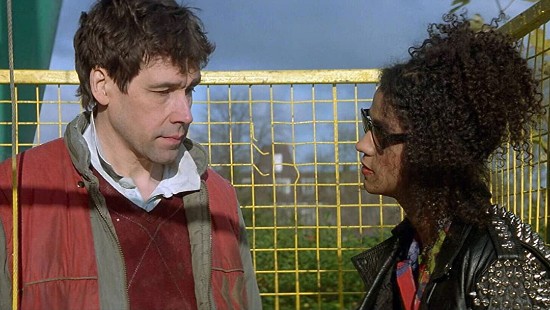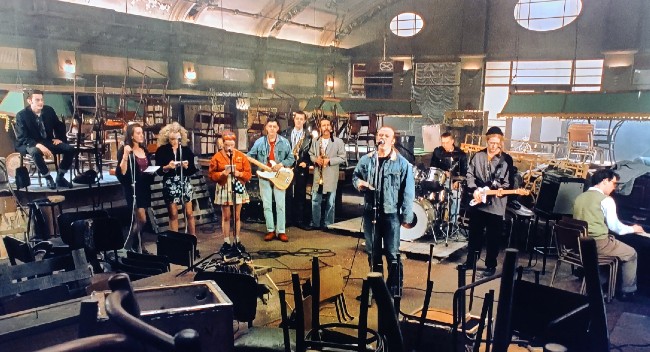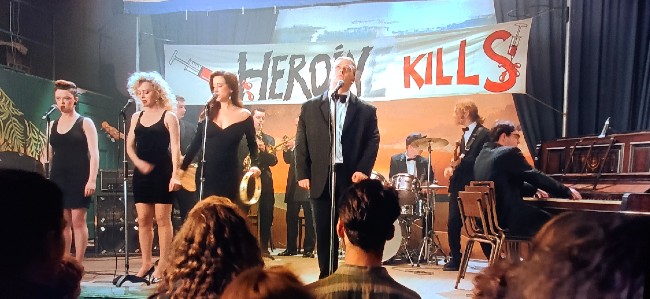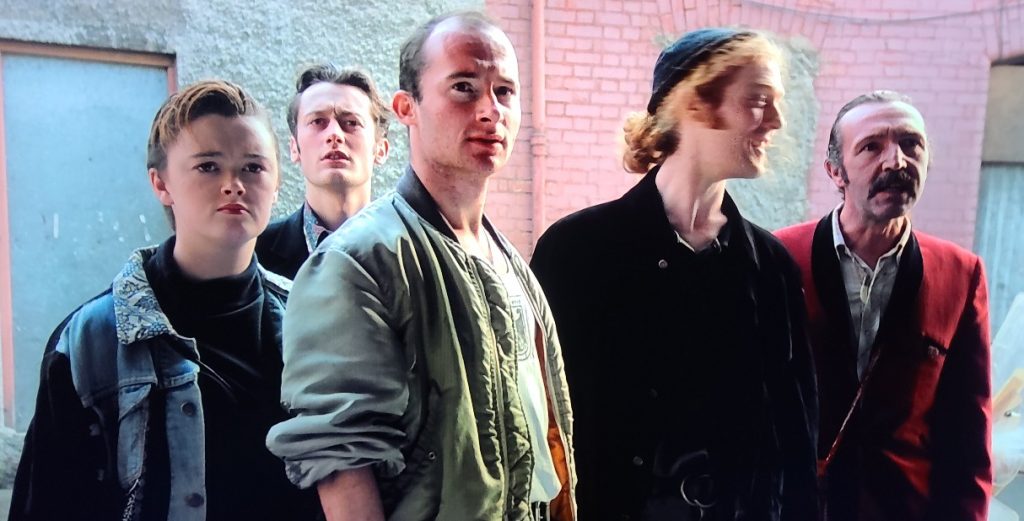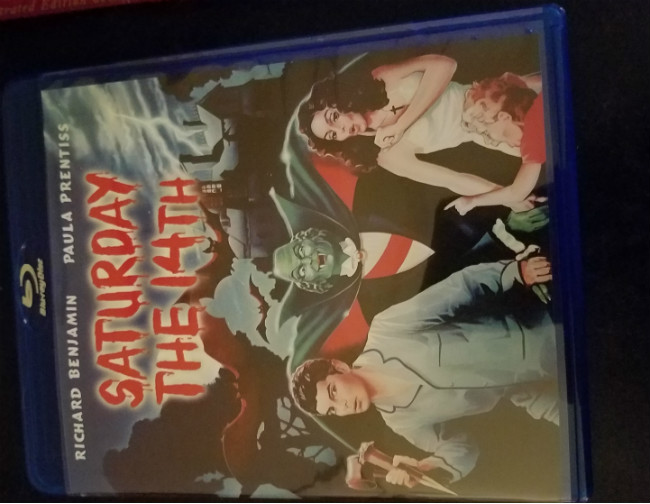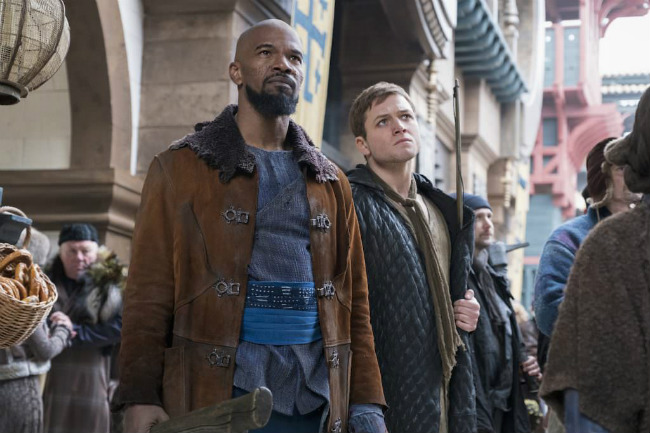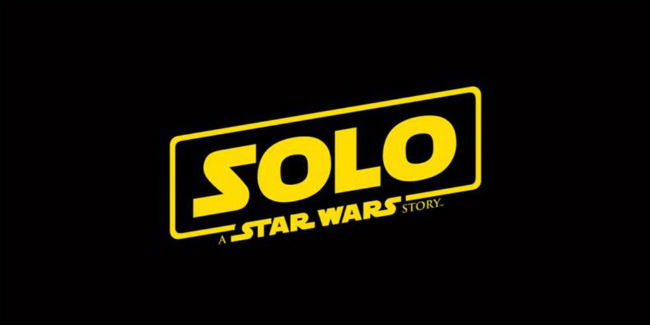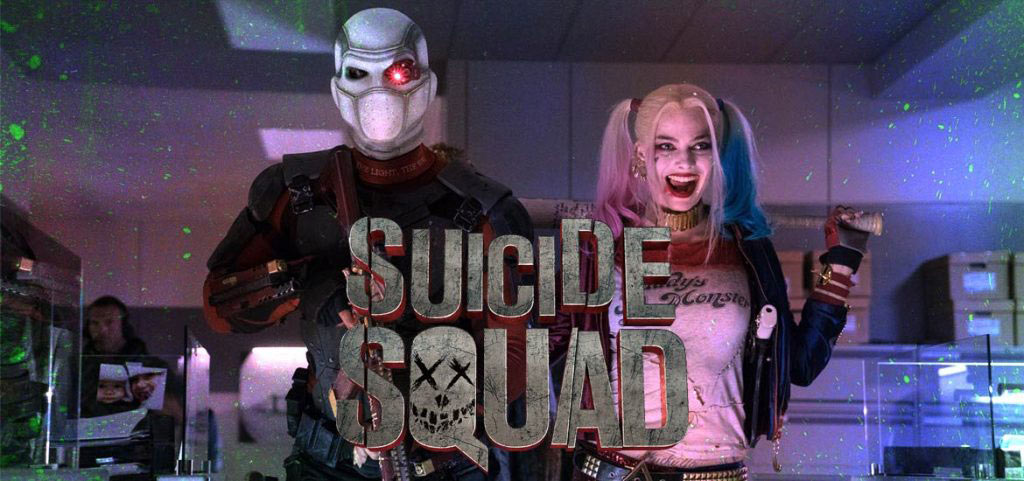The Troubles, The Commitments, and The Criterion Collection
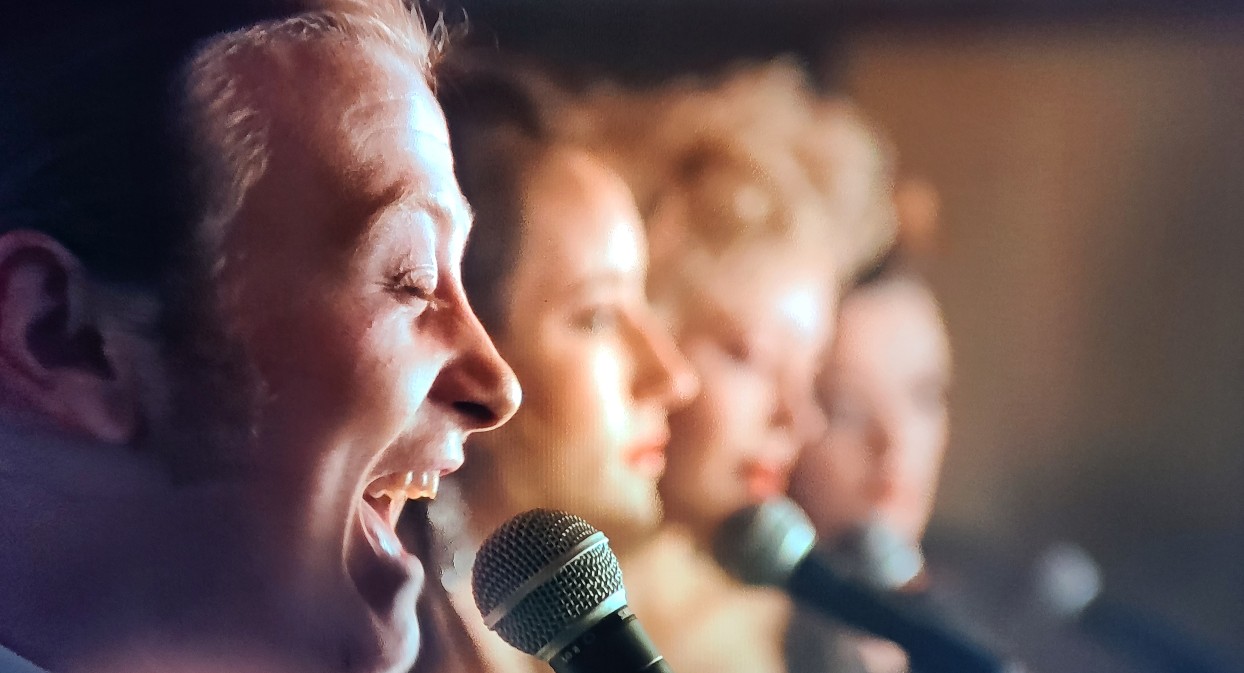
Our argument as to why The Commitments deserves The Criterion Collection treatment.
The 80s and 90s seemed, from an outward looking perspective, to be dominated by the ongoing conflict between the IRA (Irish Republican Army, used here as a catch-all for the different groups involved) and England, represented by the British military and the Royal Ulster Constabulary. Bobby Sands died in the Maze prison on May 5, 1981 after a sixty-six day hunger strike. 1989 saw the release of The Guildford Four who were falsely imprisoned for bombing a pub in Guilford, England. The same year witnessed the bombing of the Deal Barracks by the IRA. In 1991, The Maguire Seven were freed after years of being jailed for supplying the bomb material used in the Guildford bombing. In the same year the IRA’s assassination attempt on Prime Minister John Major’s life failed after mortar shells failed to reach the intended target.
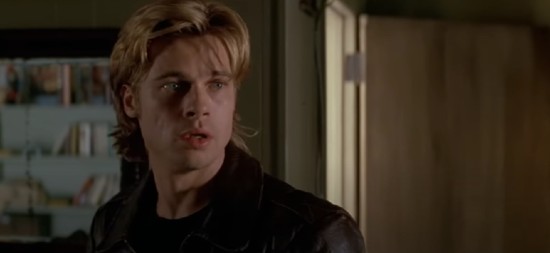
The Troubles, usually dated from the late 1960s to the signing of The Good Friday Agreement of 1998, is often framed simply as a conflict between Catholics and Protestants. To much of the outside world this was the main cause of the conflict. While religion was a central issue it was a war of politics and national identities that dated back much further than the 60s. Briefly, the Irish Republican Army wanted a unified Ireland while Ulster Protestants wanted to remain in the UK. After the Irish Civil War and the Anglo-Irish Treaty of 1921 England was not going to let Northern Ireland join the rest of Ireland.
Hollywood Comes to Ireland
In the dying days of the Cold War Hollywood needed a new boogeyman to replace the KGB agents, spies, double agents, and secret plans that had dominated the movies for decades. Hollywood, never one to turn down an opportunity to cash in on someone else’s tragedy, turned to Ireland for inspiration. IRA bombings, English prisons, and The Troubles replaced the old Cold War staples. These new movies were a far cry from the likes of Darby O’Gill and the Little People, Finian’s Rainbow, and The Quiet Man. These new movies focused on personal dramas, conflicts both external and internal, and would expose a new audience to life in Ireland and Northern Ireland through the lens of Hollywood. The quantity of movies was there but the quality was often lacking.
Mike Hodges’s A Prayer for the Dying (1987) starred Mickey Rourke as Martin Fallon who’s on the run from the IRA after accidentally blowing up a school bus full of children. Blown Away (1994, Stephen Hopkins) brought the war in Northern Ireland to the streets of Boston where Gaerity (Tommy Lee Jones) seeks revenge on Dove (Jeff Bridges) who he feels betrayed the cause. Harrison Ford’s Jack Ryan foiled an IRA assassination plot in Patriot Games (1992) and in 1997 Ford foiled another IRA plot in Alan J. Pakula’s The Devil’s Own. The remake of Day of the Jackal traded in Charles de Gaulle for Richard Gere, an ex-IRA soldier, who’s released from prison to track down a notorious hitman played by Bruce Willis in The Jackal (1997).
While these movies, with the exception of Prayer for the Dying, became box office hits they were a pale imitation of what actually occurred and did not fully represent the people involved in the events. The stories themselves all centered on the same premise of an IRA plot or destruction caused by the IRA. Prayer for the Dying, at least, had a redemptive soul at the center of its story.
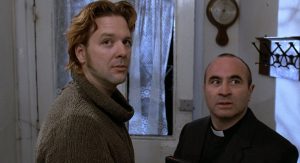
Across the pond films were being made that blended what was happening with poignant stories of love, compassion, and insight in ways their Hollywood counterparts could not. Pat Murphy’s Maeve (1981) (Mary Jackson) sees the titular character return to Belfast after living in London. She returns to the strict attitudes and confines she had left behind, but with the added layer of English hostilities. Murphy put a feminine face on what was and would, for the most part, be the playground for male dominated perspectives.
Pat O’Connor’s Cal (1984) told the love story of Catholic Cal (John Lynch) and Protestant Marcella (Helen Mirren). Cal is torn between the IRA and his love for Marcella. It’s a theme that will be visited time and again. Neil Jordan teamed up with Stephen Rea again, their first outing was Angel, for The Crying Game (1992). The movie is more famous for its surprise reveal than the relationship that developed between Dil (Jaye Davidson) and Ferguson, an IRA soldier who’s through with the life and fighting his feelings for Dil.
Jim Sheridan shined a light on the harsh treatment in English prisons in In the Name of The Father (1993). Although the movie is based on the story of the Guildford Four it’s more about the bonds between father, Giuseppe Conlon (Pete Postlewaite), and son, Gerry Conlon (Daniel Day-Lewis). Daniel Day-Lewis would team up with Jim Sheridan again in 1997 to tell the story of a former boxer and recently released IRA member who only wants to live in peace while running a gym for everyone in The Boxer.
In Hunger (2008) Steve McQueen told about Bobby Sands and the Maze prisoners’s hunger strike from the inside. In 1998, Terry George told the story from the outside. Some Mother’s Son (1998) is told from the perspective of the prisoners’ mothers who are torn between supporting their sons or having them forcibly fed during their hunger stike. Roger Michell’s Titanic Town (1998) details the devastating effects of the Troubles and one mother’s fight for peace.
“Say it once and say it loud”
Nestled between these movies was Alan Parker’s The Commitments. Released in 1991, The Commitments is far removed from the movies that come before or after it. Removed not because the movie is set in Dublin. Although most people associate the conflict with Belfast Dublin was not immune from the violence. It’s different because of what it was about. The Commitments wasn’t about what separated people, it wasn’t about bombs or death or plots. The Commitments eschewed what the other movies prominently featured to focus on what brought people together: music.
The Commitments auspicious beginning starts with auditions at Jimmy Rabbitte’s front door. Think of the worst American Idol auditions without the snarky comments and you’ll have an idea of the rabble coming to his door. None of them, not the punk or the guy who got in line thinking he was scoring drugs, had what Jimmy was looking for. Even Jimmy’s dad (Colm Meaney) tries to get in on the act. His devotion to Elvis Presley knows no bounds because “Elvis is God.” However, Jimmy was looking for Soul.
So what’s a band manager who interviews himself about future success to do when the band candidates are less than ideal? He recruits his friends and friends of friends. The band is made up of an oddball assortment of characters. There’s Deco who has the voice of a Soul singing legend and the manners of a pig, Steven the piano player from church, Dean the sax player who’s more interested in Jazz, and Imelda who the guys drool over. Then there’s the traveling musician Joey “The Lips” Fagan. It’s Joey who brings the rag tag group of musicians together as a band.
However, Joey may be completely full of shit. We’ve all known a Joey at some time in our lives. He’s the bigger and better storyteller. He’s been there, done that, and you seriously doubt ninety percent of what comes out of his mouth. But he’s believable. Jimmy’s dad is enthralled with his stories of Elvis Presley. The band is impressed with the acts he’s known. They could have been the biggest band in, at least, Dublin. It’s just too bad Wilson Pickett didn’t show up for the final show.
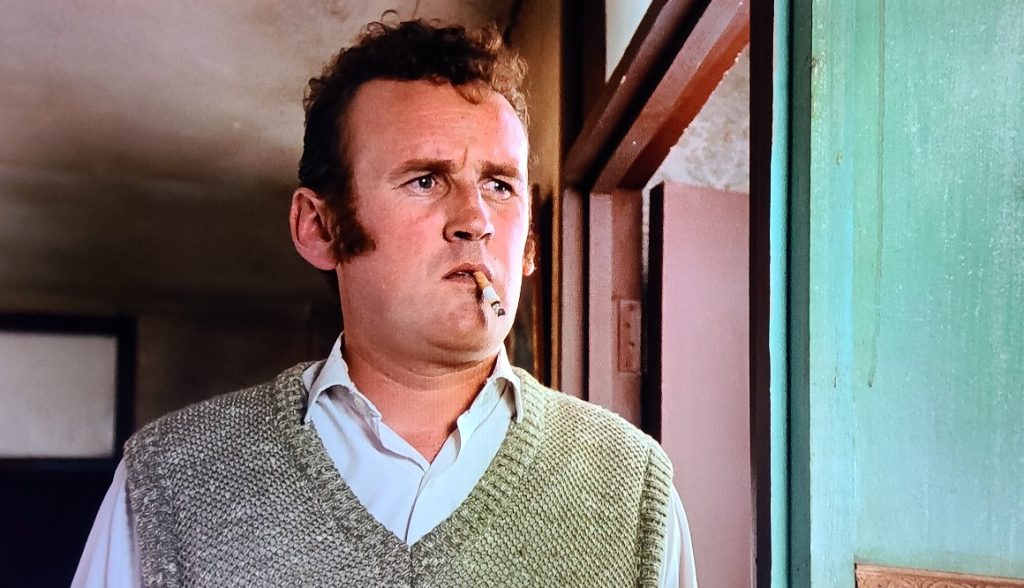
But all good things must come to an end. In the case of The Commitments it was over before it began. Maybe things would have worked out differently for the band if he had arrived on time. Maybe the band would have gone on to fame and fortune. Except The Commitments was never about fame and fortune.
Soul music we’re told is the music of the working class. The members of The Commitments are indeed working class. They work in meat packing plants and metal shops. They raise their brothers and sisters because their parents are sick or working. They get gigs playing at weddings and on street corners. Fagan you goes wherever the next paying gigs takes him which was going on tour with Joe Tex. Except, Joe Tex had been dead for ten years. Soul music is life and it’s through the music a people are brought together. As Fagan says, “The Irish brothers wouldn’t be shooting the arses off each other if they had soul.”
So what is The Commitments about? Music? Yes. The Commitments soundtrack peaked at number 8 on the Billboard charts. It also spawned a second soundtrack with more songs from the movie and originals by the band. But The Commitments is about more than music. The Commitments is about chasing your dreams and even if you don’t achieve those dreams you shoot for moon and land among the stars. Deco got a recording contract, Dean went on to be in a Jazz band, Steven became a doctor, and Jimmy kept on interviewing himself.
Alan Parker
Alan Parker was no stranger to music or movies. Parker gave a wide audience their first glimpse of life in the inner city and exposed them to an arts academy like they’d never seen before in Fame. Ironically enough, the movie also helped propel Irene Cara to fame. Parker mixed live action scenes with animation in Pink Floyd’s The Wall with great success. The Wall has gone on to be a cult classic. Parker returned to the music front after The Commitments with the much maligned Evita. To be fair, what was any director to do with a movie based on a musical based on the life of a fascist?
Parker’s career spanned more than forty years. In that time he made such iconic films as the Oscar winning films Midnight Express and Mississippi Burning, Angel Heart, and Come See the Paradise. Parker passed away in July of 2020 at the age of 76.
The Criterion Collection
The Criterion Collection’s mission simply stated is “to publishing important classic and contemporary films from around the world in editions that offer the highest technical quality and award-winning, original supplements.” The Commitments, which by any stretch of the imagination is a classic, is still absent from the collection. The Commitments may not be the most well known film, but most movies in the collection are not known by the general public at large.
Criterion Collection releases are known for the quality of their 2K and 4K transfers. Old films have been restored to their once former glory. The movie would benefit from an upgrade, but more importantly the classic songs will sound much better than any releases of the movie to date. The one thing that stands above all the bonus features are the essays found in every booklet. Can you imagine essays on The Commitments from rock and roll journalists like Kurt Loder, Jaan Uhelszki, Ann Powers, or even by rock journalist turned film maker Cameron Crowe?
Realistically, there are probably copyright protections preventing The Criterion Collection from including The Commitments in the collection. In addition, The Criterion Collection would have to pay a lot of money for the songs. However, there are two major reasons why The Commitments deserves to be in The Criterion Collection: The Rock and Armageddon. If those two movies can get Criterion releases then there should be nothing stopping Criterion from releasing The Commitments.

